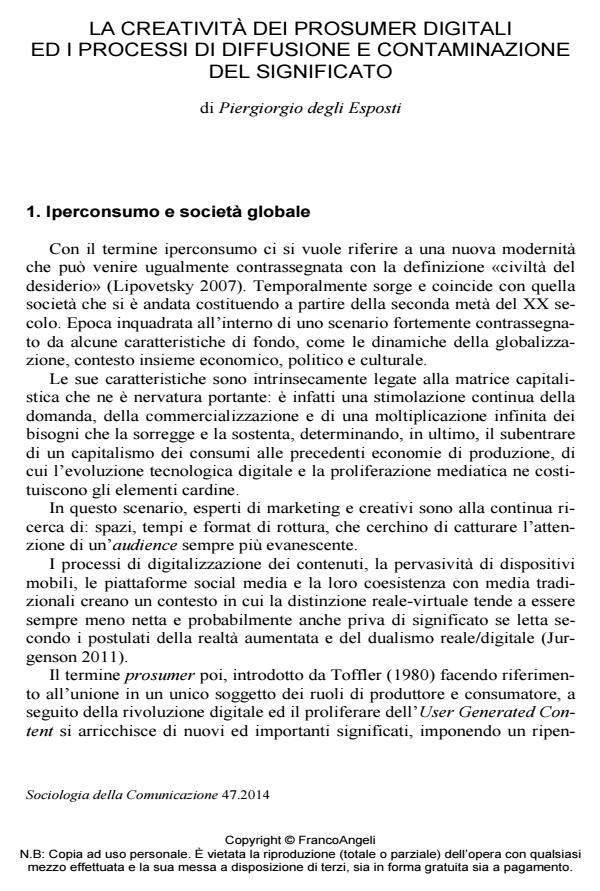Digital prosumer’s creativity, diffusion and contamination of meaning
Journal title SOCIOLOGIA DELLA COMUNICAZIONE
Author/s Giorgio Degli Esposti
Publishing Year 2014 Issue 2014/47
Language Italian Pages 13 P. 116-128 File size 178 KB
DOI 10.3280/SC2014-047010
DOI is like a bar code for intellectual property: to have more infomation
click here
Below, you can see the article first page
If you want to buy this article in PDF format, you can do it, following the instructions to buy download credits

FrancoAngeli is member of Publishers International Linking Association, Inc (PILA), a not-for-profit association which run the CrossRef service enabling links to and from online scholarly content.
Starting from the hyperconsumption concept and how the evolution of digital technologies is shaping a new relationship between production and consumption, this paper aims to analyse the digital prosumer’s role in the value creation process. The author’s focus is upon marketing and storytelling evolution and highlights the transition from virality to spreadability of content, the collapse of the context in social media environment, the digital prosumer’s empowerment/exploitment paradox. The contemporary brand according to the author is a resilient actor, his thesis is supported by literature and case studies.
Keywords: Hyperconsumption, resiliency, prosumer, production, consumption
- Meeting the prosumer: Transporting, hosting and feeding people in the sharing economy Francesca Setiffi, Gian Paolo Lazzer, Vincenzo Scotto, in SOCIOLOGIA DEL LAVORO 152/2018 pp.104
DOI: 10.3280/SL2018-152006
Giorgio Degli Esposti, La creatività dei prosumer digitali ed i processi di diffusione e contaminazione del significato in "SOCIOLOGIA DELLA COMUNICAZIONE " 47/2014, pp 116-128, DOI: 10.3280/SC2014-047010